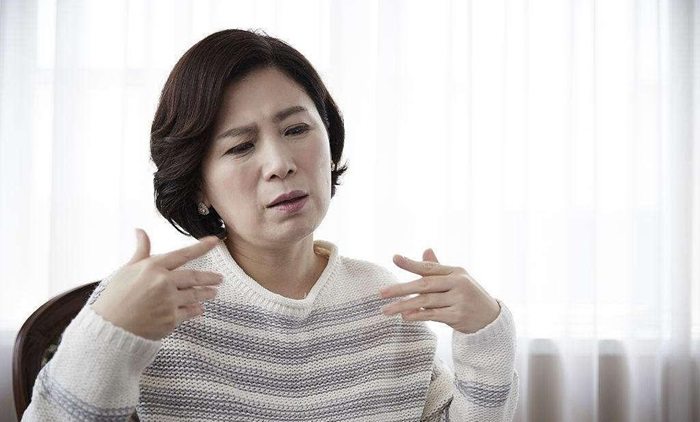Estrogen – Based Tablets: Estrogen is one of the key hormones that decline during menopause. Estrogen – only tablets are often prescribed for women who have had a hysterectomy. These tablets can help relieve symptoms such as hot flashes, night sweats, and vaginal dryness. By replenishing the estrogen levels in the body, they can improve the quality of life for menopausal women. For example, conjugated equine estrogens are commonly used in some formulations. However, there are potential risks associated with estrogen – only HRT, including an increased risk of blood clots and endometrial cancer in women with an intact uterus.
Combined Estrogen and Progesterone Tablets: For women with an intact uterus, combined tablets that contain both estrogen and progesterone are usually recommended. Progesterone is added to protect the uterus from the potential over – stimulation by estrogen, which could lead to endometrial hyperplasia or cancer. These combined tablets are effective in managing hot flashes, mood swings, and other menopausal symptoms. They also help maintain bone density. One of the well – known combinations is Prempro, which has been widely studied. But like estrogen – only tablets, they also carry risks such as an increased risk of breast cancer, stroke, and heart disease.
Low – Dose HRT Options: In recent years, there has been an increasing trend towards using low – dose HRT tablets. These are designed to provide symptom relief while minimizing the potential risks. They can be a good option for women who have mild to moderate menopausal symptoms and are concerned about the side effects of higher – dose HRT.
Non – Hormonal Tablets for Symptom Relief
Antidepressants: Selective serotonin reuptake inhibitors (SSRI) and serotonin – norepinephrine reuptake inhibitors (SNRI) are sometimes used to treat menopausal symptoms, especially mood swings, anxiety, and depression. These medications work by increasing the levels of neurotransmitters in the brain. For example, drugs like fluoxetine and venlafaxine have been shown to be effective in reducing hot flashes as well as improving mood. They are often a good alternative for women who cannot or choose not to take hormonal medications.
Gabapentin: Originally developed to treat epilepsy, gabapentin has also been found to be useful in reducing hot flashes. It acts on the nervous system to modulate the signals that may be involved in the occurrence of hot flashes. It can be an option for women with frequent and severe hot flashes, especially those who have not responded well to other treatments.
Clonidine: Clonidine is a medication that was initially used to treat high blood pressure. It has been found to have some efficacy in reducing hot flashes in menopausal women. It works by acting on the sympathetic nervous system to lower the body’s response to triggers that cause hot flashes.
Nutraceutical Tablets
Black Cohosh Tablets: Black cohosh is an herbal supplement that has been traditionally used to relieve menopausal symptoms. It is believed to have an effect on the hormonal system, although the exact mechanism is not fully understood. Some studies suggest that black cohosh tablets may help reduce hot flashes and improve mood. However, long – term safety and efficacy are still being investigated.
Red Clover Tablets: Red clover contains isoflavones, which are plant – based compounds that have estrogen – like effects. Red clover tablets may be used to alleviate hot flashes and vaginal dryness. They are considered a more natural alternative to hormonal therapies, but their effectiveness can vary from person to person.
Vitamin and Mineral Supplements: Some vitamins and minerals are important during menopause. For example, calcium and vitamin D tablets are often recommended to maintain bone health, as the risk of osteoporosis increases during this time. Vitamin E tablets may also have some potential in reducing hot flashes due to their antioxidant properties. B – complex vitamins can help with energy levels and mood regulation.
Conclusion
Menopause tablets come in a variety of forms, each with their own benefits and potential risks. Hormone replacement therapy tablets can be highly effective in managing many menopausal symptoms, but they require careful consideration of the associated health risks. Non – hormonal tablets offer alternative options for symptom relief, especially for women who are unable or unwilling to take hormones.
Nutraceutical tablets provide a more natural approach, although their scientific evidence may be less conclusive. It’s crucial for women going through menopause to have a detailed discussion with their healthcare provider to determine the most appropriate tablets based on their individual symptoms, medical history, and risk tolerance. This way, they can better manage the challenges of menopause and maintain a good quality of life.
Related topics
- Are Sage Tablets Good for Menopause? A Comprehensive Review
- When Is The Best Time To Take Sage Tablets?
- 4 Herbal Medicines For Menopause: Benefits & Usage


